Approach
The OpenSuperQPlus project aims to build a quantum computer that, in certain tasks, by far outperforms today’s classical supercomputers by moving from
…Classical Parallel Computing…
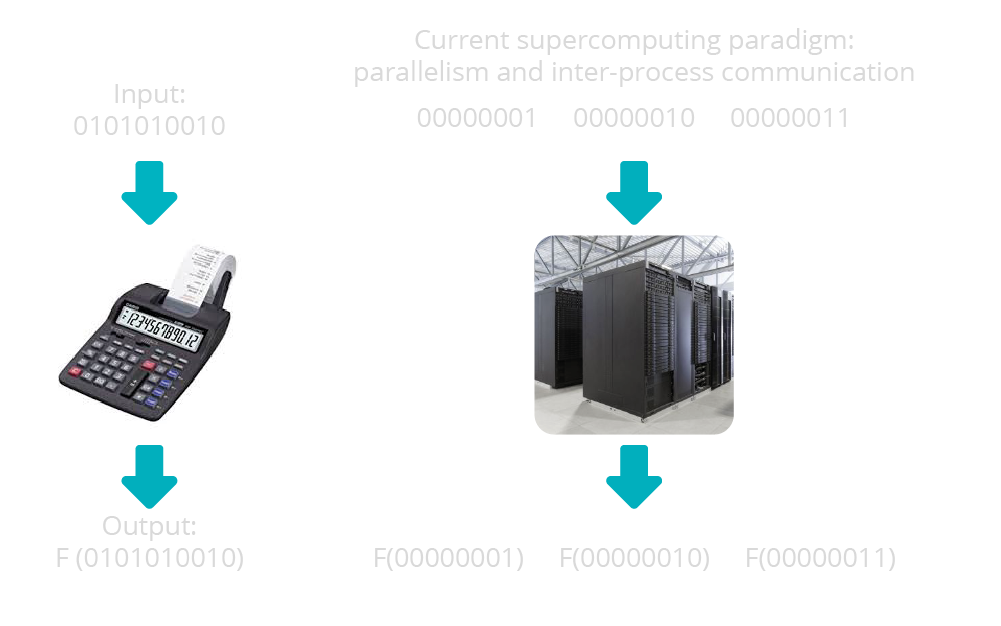
…to Quantum Computing…
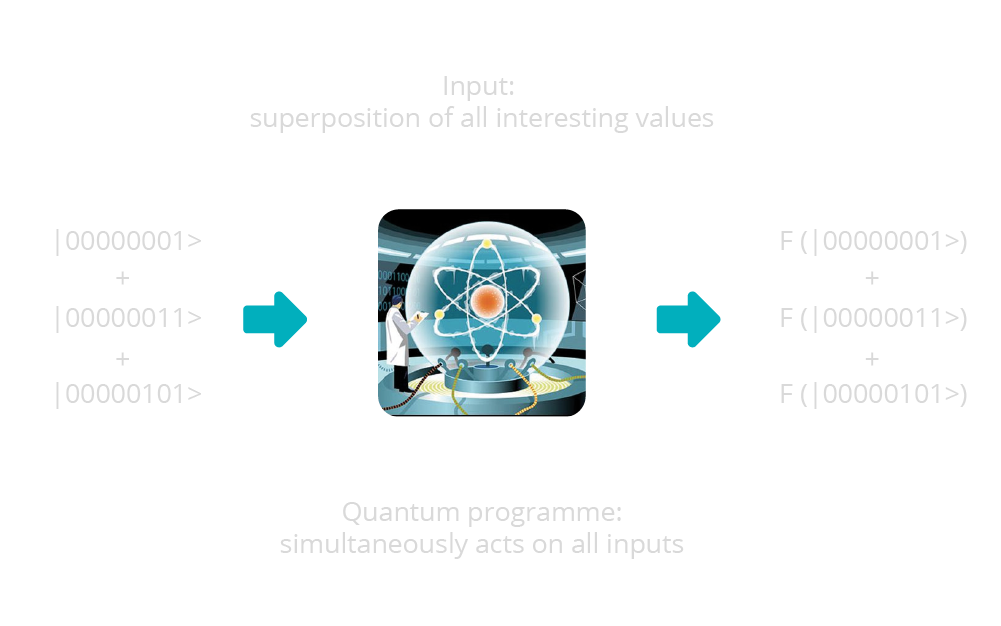
Candidate applications:
- Quantum simulation in chemistry and materials science
- Optimisation
- Network analysis
- Signal processing
- Machine learning
- Quantum error correction
Quantum advantages:
- parallel computing without parallel hardware
- maximum of parallel processes: simultaneously processing the whole input
Quantum challenge:
- Probabilistic nature of quantum physics in measurement, readout, sampling
- Sensitivity of quantum computing systems to noise
The Stack – The Overall Framework of OpenSuperQPlus
The targeted quantum computing system of up to 1,000 qubits consists of a full hard- and software stack to which all technical project partners contribute in their respective areas of expertise.
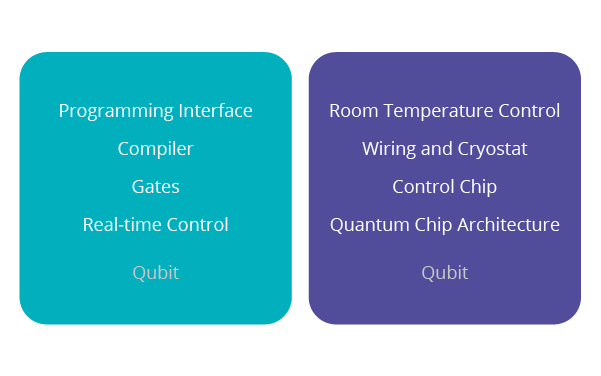
The Hardware
Processor based on superconducting integrated circuits plus supporting technology: microwave electronics, control infrastructure and cryogenics.
Superconductor
- A quantum state showing lossless electrical conduction
- Common in metals (e.g. Al, Nb)
- Occuring at low temperature
Josephson Junction
- Thin barrier between superconductors
The Inner Part
- Left panel: A Josephson Junction at the heart of the qubit
- Right panel: A cross-shaped qubit with a Josephson Junction at the upper tip
- Cross-shape for connectivity
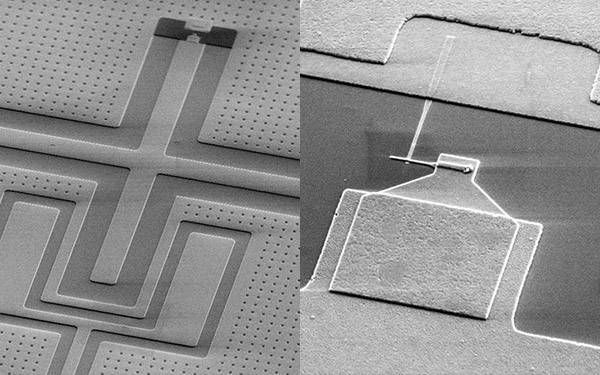
The Outer Part
- The chip must be connected to input and output
- Control: double chip package
- Bridges and pins required

Cryogenics
- Helium dilution cryostat
- Copper plates to maintain uniform temperature at different stages
- Input/output: large wiring load
- The shown insert is in an operated steel can
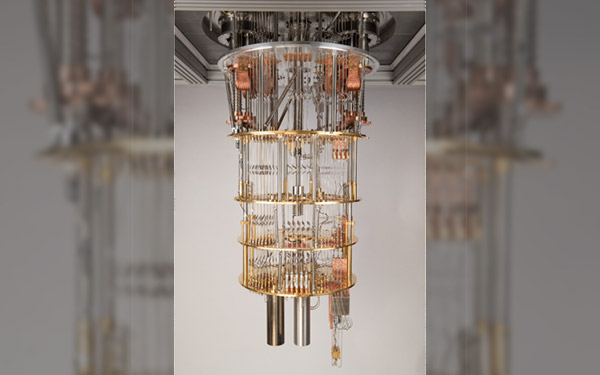
Control Electronics
- Qubit control and readout
- Scalable to large channel number
- Low latency and high synchronisation accuracy
- Specialised signal processing
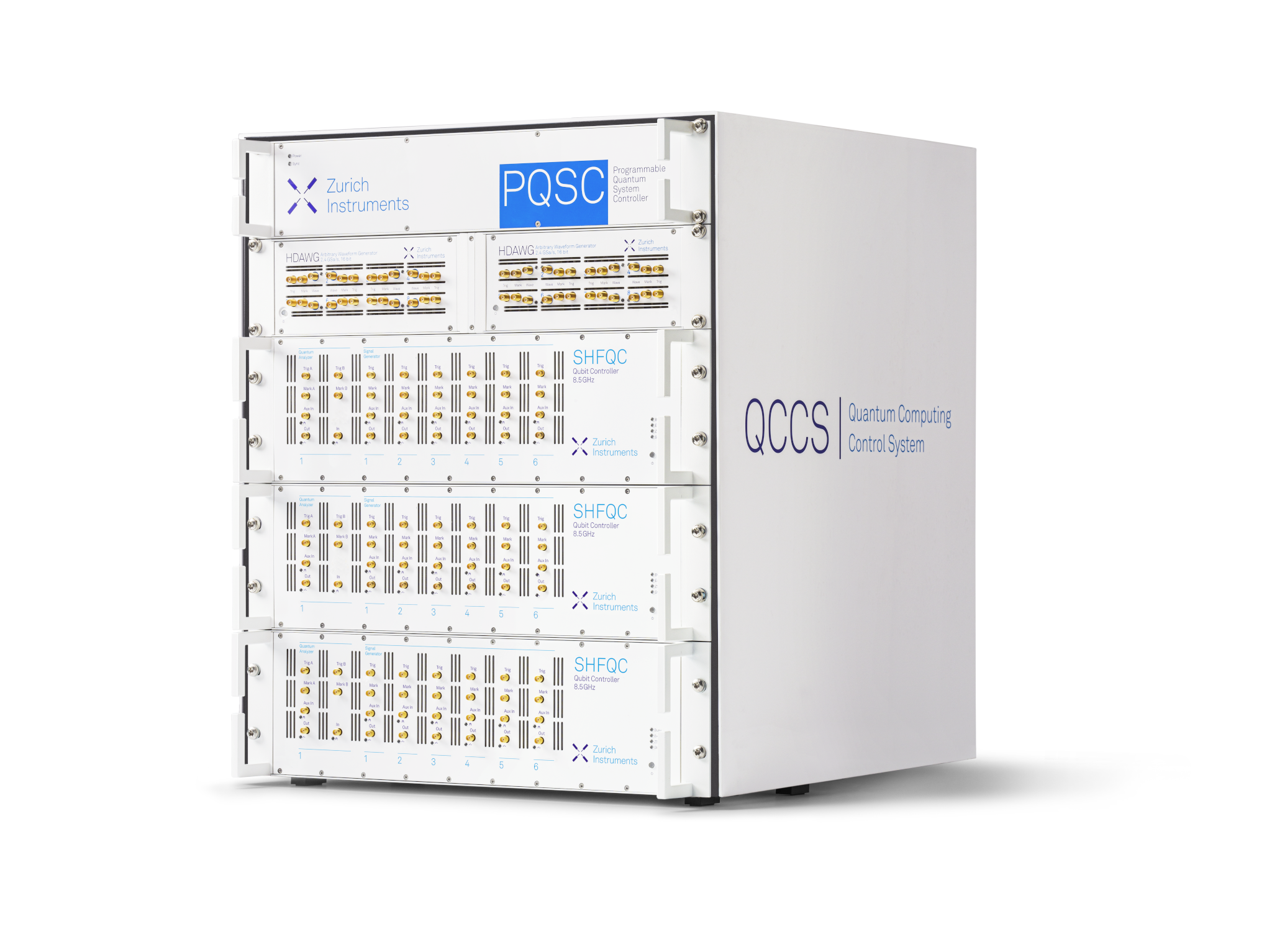
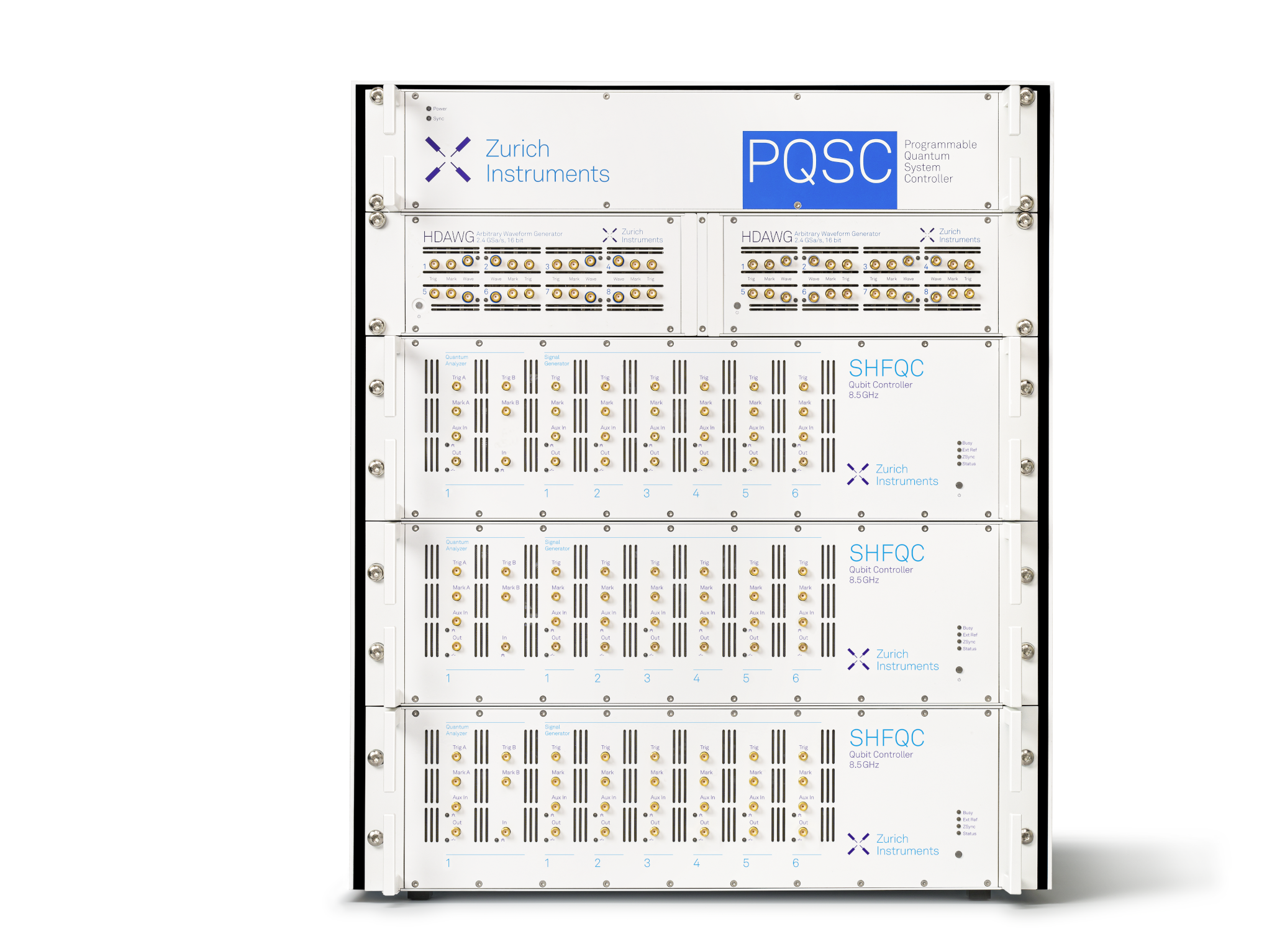
The Software
The software stack will be integrated from user access all the way to low-level control and run in a central facility
- Programming interface for users
- Operable in a high-performance computing environment
- Tight integration with classical computers
System Integration
The quantum computing demonstrators built in OpenSuperQPlus with a full hardware and software stack will be made available to users from science and industry via the Dutch cloud platform Quantum Inspire.
QC demonstrator sites are:
- Netherlands: Delft University of Technology
- Sweden: Chalmers University of Technology
- Germany: Walther Meissner Institute